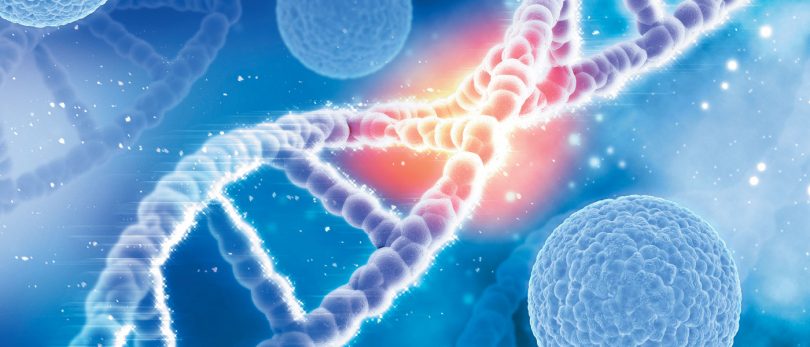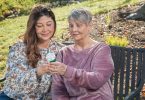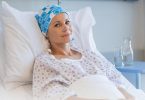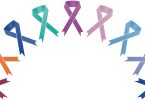The study of genetics related to breast cancer has progressed rapidly since BRCA1 and BRCA2 gene mutations were first linked to an increased risk of breast and ovarian cancer. Three recent advancements include broader gene panels, increasingly customized screening plans based on risk, and a significantly lower price for self-paid genetic tests.
Web Exclusive
A word of caution
Despite the hype, at-home tests for gene mutations related to breast cancer aren’t recommended. The U.S. Food and Drug Administration, U.S. Federal Trade Commission, and Centers for Disease Control and Prevention all caution against the at-home test kit. To achieve accuracy and expert counseling, these government agencies agree that genetic testing should only be conducted in a qualified medical setting – and preferably recommended by your healthcare provider or genetic counselor.
1: Broader gene panels
Today, genetic tests examine a more comprehensive panel of genes to assess risk for breast cancer. Some inherited gene variations increase risk moderately, while some others, like the BRCA1 and BRCA2 genes, greatly increase risk. Additionally, there are numerous gene variations that have “uncertain clinical significance,” meaning they have been identified as possibly playing a role in cancer risk, but need more study to pinpoint the clinical significance.
Further confusing matters is the fact that only 5 to 10 percent of all breast cancers are linked to inherited genetic variations, which means a negative test result does not remove a woman’s lifetime cancer risk. It’s important to evaluate both negative and positive results in the context of personal and family cancer history.
“Genes are not simple. So any time anyone has a genetic test, they need a genetic counselor to interpret the findings, explain personal and family risk factors, and suggest a course of action to hopefully reduce risks,” emphasizes Luba Djurdjinovic, MS, executive director of Ferre Institute, Inc., a nonprofit organization that provides genetic counseling at the UHS Breast Center. “We are still looking for the genes that will help us understand the majority of breast cancers,” she adds.
WHEN TO TEST
According to the National Comprehensive Cancer Network (NCCN), genetic testing is recommended if:
- There is a known BRCA1 or BRCA2 mutation in your family
- You or a woman in your family had breast cancer at age 50 or younger
- A woman in your family had breast cancer in both breasts or ovarian cancer
- A man in your family had breast cancer
- Your family is of Ashkenazi Jewish descent and you or someone in your family had breast cancer
2: Increasingly customized screening
While genetic testing cannot conclusively tell a woman if she will develop breast cancer or if she carries a hereditary gene mutation, the UHS Breast Center is dedicated to meeting any patient or genetic counselor’s concerns with a proactive, customized screening plan. “We’ll link a patient with a provider who specializes in those at high risk, and we’ll monitor that patient closely with additional screenings,” says UHS High Risk Cancer Clinic Specialist Jennifer Schecter, FNP-BC, OCN. “This way, if we ever do find something, it’s at the earliest possible and most treatable stage.”
3: Lower costs
Some patients don’t meet the National Comprehensive Cancer Network guidelines for genetic testing, which precludes them from insurance coverage. “Still, though, you may feel like something is going on in your family,” Ms. Djurdjinovic says.
Genetic counseling can help patients understand their testing options, including newer, more affordable self-pay laboratories. Through these labs, genetic testing costs have dropped from around $4,000 to somewhere between $249 and $400. “Three laboratories in the U.S. now offer genetic testing at a very affordable, self-pay cost,” Ms. Djurdjinovic says. “So for patients who don’t meet their insurer’s testing criteria but have concerns, I can connect them with these labs.”
FROM THE ARCHIVES
Read about a patient’s experience with genetic counseling for breast cancer risk.







